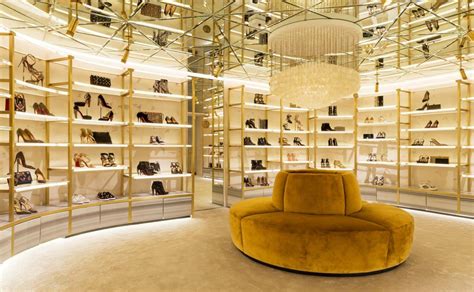
Extravagant requests, bizarre returns, and flagrant displays of wealth are just some of the anecdotes shared by luxury retail employees, offering a glimpse into the often-unseen world of high-end consumerism where the customer is not just always right, but sometimes outrageously so.
Behind the velvet ropes and gleaming display cases of luxury boutiques lies a world of extraordinary customer behavior, as revealed by retail workers who’ve witnessed the excesses firsthand. From demanding the impossible to exhibiting shocking displays of entitlement, these stories, shared anonymously, paint a vivid picture of the ultra-rich and their interactions with the service industry.
“I had a woman try to return a dress she had clearly worn because ‘it didn’t look good on her anymore,'” one anonymous retail worker recounted, a sentiment echoed by many others who have found themselves on the front lines of these high-stakes encounters. These anecdotes highlight the unique challenges faced by those employed in luxury retail, where maintaining a polished facade often means navigating the whims of the exceptionally wealthy.
The confessions shed light on the immense pressure these employees face to cater to every whim, no matter how outlandish. One employee revealed, “A client once demanded we overnight ship a specific handbag to their yacht in the Mediterranean – on a Sunday.” The expectation of immediate gratification appears to be a common thread, with employees often scrambling to fulfill requests that would be considered unreasonable in most other retail settings.
Another recurring theme is the flaunting of wealth, sometimes in ways that are both astonishing and unsettling. “I had a guy pay for a $20,000 watch with a stack of hundreds straight out of his pocket,” another worker shared. Such displays, while perhaps intended to impress, often leave retail staff feeling uncomfortable and objectified.
The world of luxury retail isn’t always about smooth transactions and impeccable service; it’s also a stage for dramatic confrontations and bizarre requests. These experiences shared by luxury retail employees offer a rare peek behind the curtain, revealing the often-absurd realities of catering to the ultra-rich.
The Psychology of Luxury Consumption
To understand these behaviors, it’s essential to delve into the psychology of luxury consumption. For many affluent individuals, luxury goods are more than just material possessions; they are symbols of status, success, and belonging. Owning exclusive items can provide a sense of validation and self-worth, reinforcing their position within an elite social circle.
Dr. Emily Carter, a consumer psychologist specializing in luxury branding, explains, “Luxury purchases are often driven by emotional needs rather than practical ones. The act of acquiring a high-end item can provide a temporary boost in self-esteem and a feeling of superiority.”
This emotional investment can lead to heightened expectations and a sense of entitlement. Customers who view luxury retailers as providers of not just goods but also emotional fulfillment may feel justified in making unreasonable demands. The staff become extensions of the brand, expected to cater to every whim and ensure a seamless, personalized experience.
The dynamic between luxury consumers and retail staff is further complicated by the power imbalance inherent in the transaction. Wealth affords privilege, and some customers may exploit this advantage, viewing retail employees as subservient rather than as professionals providing a service. This can manifest in disrespectful behavior, unreasonable requests, and a general disregard for the boundaries of normal social interaction.
The Impact on Retail Employees
Working in luxury retail can be both lucrative and challenging. The potential to earn high commissions and interact with influential clientele is attractive, but the emotional toll of dealing with demanding customers can be significant.
The pressure to maintain a flawless image, provide exceptional service, and handle difficult situations with grace can lead to stress, burnout, and even feelings of resentment. Employees are often required to adhere to strict dress codes, maintain a positive attitude at all times, and resolve conflicts discreetly, even when faced with unreasonable behavior.
“It’s like being an actor,” one former luxury retail employee confessed. “You have to put on a show for the customers, even when you’re feeling exhausted or frustrated. The company expects you to be perfect, and the customers expect even more.”
The anonymity afforded by these confessions allows retail workers to share their experiences without fear of reprisal, providing valuable insights into the hidden costs of catering to the ultra-rich. Their stories serve as a reminder that behind every luxury purchase lies a human cost, and that even the wealthiest individuals are not always immune to displaying questionable behavior.
Specific Anecdotes and Examples
The original Yahoo article provides a wealth of specific anecdotes that illustrate the points discussed above. Here are some expanded examples, drawing details and context from the source material:
-
The Impossible Return: The story of the woman attempting to return a clearly worn dress because “it didn’t look good on her anymore” speaks volumes about the perceived value of luxury items and the entitlement some customers feel. The expectation that a retailer should accept a return on a used item, regardless of the circumstances, highlights a disconnect between the consumer’s perception of their own power and the retailer’s policies. This often leads to tense negotiations and requires employees to exercise considerable tact and diplomacy to avoid escalating the situation. The employee has to balance the need to uphold store policies with the desire to maintain a positive relationship with a potentially valuable customer. The internal conflict in such scenarios is a common stressor for luxury retail workers.
-
The Overnight Delivery to a Yacht: The demand for an overnight delivery of a specific handbag to a yacht in the Mediterranean on a Sunday exemplifies the expectation of immediate gratification and the willingness to spend exorbitant amounts of money to satisfy a whim. This request highlights the logistical challenges that luxury retailers sometimes face in catering to their clients’ needs. Coordinating international shipments, navigating customs regulations, and ensuring timely delivery, regardless of the location or day of the week, requires a dedicated team and a willingness to go above and beyond. The cost of such services is often secondary to the client’s desire for immediate fulfillment. This anecdote also illustrates the lengths to which luxury brands will go to maintain their reputation for exceptional service.
-
The Cash Payment for a Watch: The anecdote of the customer paying for a $20,000 watch with a stack of hundreds straight from his pocket showcases the ostentatious displays of wealth that are common in luxury retail environments. While the act itself may not be inherently offensive, it can create an uncomfortable atmosphere for both employees and other customers. It also raises questions about the source of the funds and the potential for illicit activities. Luxury retailers are increasingly aware of the need to comply with anti-money laundering regulations and to report suspicious transactions to the authorities. Employees are often trained to recognize red flags and to handle cash payments with discretion. The flaunting of wealth can also be interpreted as a power play, intended to intimidate or impress those around them.
-
The Designer Tantrum: Imagine a scenario where a high-profile client, perhaps a celebrity or socialite, arrives at a boutique demanding a specific item that is out of stock. The client becomes increasingly agitated, berating the staff and threatening to take their business elsewhere. The employees are left to navigate the situation with grace and professionalism, attempting to appease the client while simultaneously adhering to store policies. This type of situation requires exceptional communication skills, patience, and the ability to remain calm under pressure. The employee may have to offer alternative solutions, such as sourcing the item from another store or offering a discount on a similar product. The goal is to de-escalate the situation and maintain the client’s loyalty, even in the face of unreasonable behavior.
-
The Personal Shopper’s Nightmare: Consider a personal shopper who is tasked with curating a wardrobe for a demanding client with constantly changing tastes. The shopper spends hours selecting garments, accessories, and shoes, only to have the client reject everything at the last minute. The shopper must then start the process all over again, attempting to decipher the client’s elusive preferences and anticipate their every need. This type of scenario highlights the challenges of working in a service-oriented industry where success is often dependent on satisfying the whims of others. The personal shopper must possess a deep understanding of fashion trends, excellent communication skills, and the ability to build rapport with their clients. They must also be prepared to handle rejection and to adapt to changing circumstances.
The Broader Context: Inequality and Consumerism
These anecdotes are not just isolated incidents; they reflect a broader societal trend of increasing inequality and rampant consumerism. As the gap between the rich and the poor widens, the excesses of the wealthy become more pronounced, and the service industry bears the brunt of their demands.
The culture of instant gratification and the pursuit of material possessions have created an environment where some individuals feel entitled to special treatment and expect their every need to be met without question. This can lead to a sense of disconnect from reality and a disregard for the feelings and experiences of others.
The luxury retail industry plays a role in perpetuating this culture by promoting the idea that happiness and success can be bought and sold. Advertising campaigns often portray luxury goods as symbols of status, power, and belonging, reinforcing the notion that acquiring these items will elevate one’s social standing.
The Need for Empathy and Respect
While it is easy to judge the behavior of the wealthy individuals described in these anecdotes, it is important to remember that they are still human beings with their own insecurities and motivations. However, their behavior also highlights the need for greater empathy and respect in all interactions, regardless of wealth or social status.
Retail employees are not servants; they are professionals providing a valuable service. They deserve to be treated with courtesy and respect, even when dealing with demanding customers. Companies also have a responsibility to protect their employees from abuse and to provide them with the training and support they need to handle difficult situations.
Ultimately, creating a more equitable and respectful society requires a shift in values, away from the pursuit of material possessions and towards a greater appreciation for human connection and compassion.
The Future of Luxury Retail
The luxury retail industry is evolving, with a growing emphasis on personalization, sustainability, and ethical practices. Consumers are becoming more aware of the social and environmental impact of their purchases and are demanding greater transparency from brands.
Luxury retailers are responding to these trends by offering more personalized shopping experiences, using sustainable materials, and supporting fair labor practices. They are also investing in technology to enhance the customer experience and to create more efficient supply chains.
The future of luxury retail will likely involve a greater emphasis on building relationships with customers, rather than simply selling them products. This will require a more human-centered approach, where employees are empowered to provide exceptional service and to connect with customers on a personal level. It will also require a greater commitment to ethical and sustainable practices, ensuring that luxury consumption is not achieved at the expense of others.
Frequently Asked Questions (FAQ)
-
What are some of the most common complaints luxury retail employees have about wealthy customers?
Common complaints include customers demanding impossible requests, returning worn or damaged items, flaunting their wealth in uncomfortable ways, being disrespectful or condescending to staff, and expecting immediate gratification regardless of the situation or logistical challenges. Often, these behaviors stem from a sense of entitlement and a lack of awareness of the impact of their actions on others.
-
Why do wealthy customers sometimes behave poorly in luxury retail settings?
Several factors contribute to this behavior. Some customers may view luxury goods as a symbol of status and feel entitled to special treatment. Others may be seeking validation or a temporary boost in self-esteem through their purchases. The power imbalance inherent in the transaction can also lead to disrespectful behavior, with some customers viewing retail employees as subservient. Underlying insecurities and a lack of awareness of the impact of their behavior can also play a role.
-
How do luxury retail companies train their employees to deal with difficult or demanding customers?
Luxury retail companies typically invest heavily in training their employees to handle difficult customer situations. This training often includes communication skills, conflict resolution techniques, product knowledge, and brand etiquette. Employees are taught to remain calm and professional under pressure, to empathize with customers’ concerns, and to find creative solutions to their problems. They are also trained to recognize and report suspicious behavior, such as potential money laundering activities. Furthermore, some companies offer training on emotional intelligence and stress management to help employees cope with the emotional toll of dealing with demanding clientele.
-
What are the ethical considerations for luxury retail employees who witness questionable or illegal behavior?
Luxury retail employees face a number of ethical dilemmas, particularly when they witness questionable or illegal behavior. They have a responsibility to uphold the law and to protect the company’s reputation, but they also need to be mindful of customer privacy and confidentiality. If an employee suspects that a customer is engaged in illegal activity, such as money laundering or fraud, they are typically required to report it to their supervisor or to the appropriate authorities. However, doing so can be difficult, as it may jeopardize the customer relationship and potentially lead to retaliation. Companies should have clear policies and procedures in place to guide employees in these situations and to protect them from any negative consequences.
-
How is the luxury retail industry changing to address issues of sustainability and ethical consumption?
The luxury retail industry is increasingly focused on sustainability and ethical consumption, driven by growing consumer awareness and demand for responsible practices. Brands are adopting more sustainable materials, reducing their carbon footprint, and promoting fair labor practices throughout their supply chains. They are also offering more personalized shopping experiences, investing in technology to enhance customer service, and supporting charitable causes. Some companies are even experimenting with circular economy models, such as resale and rental programs, to extend the life cycle of their products. Consumers are becoming more discerning and are demanding greater transparency from brands, forcing the industry to adapt and evolve to meet their expectations. This shift reflects a growing recognition that luxury is not just about exclusivity and opulence, but also about responsibility and sustainability.









